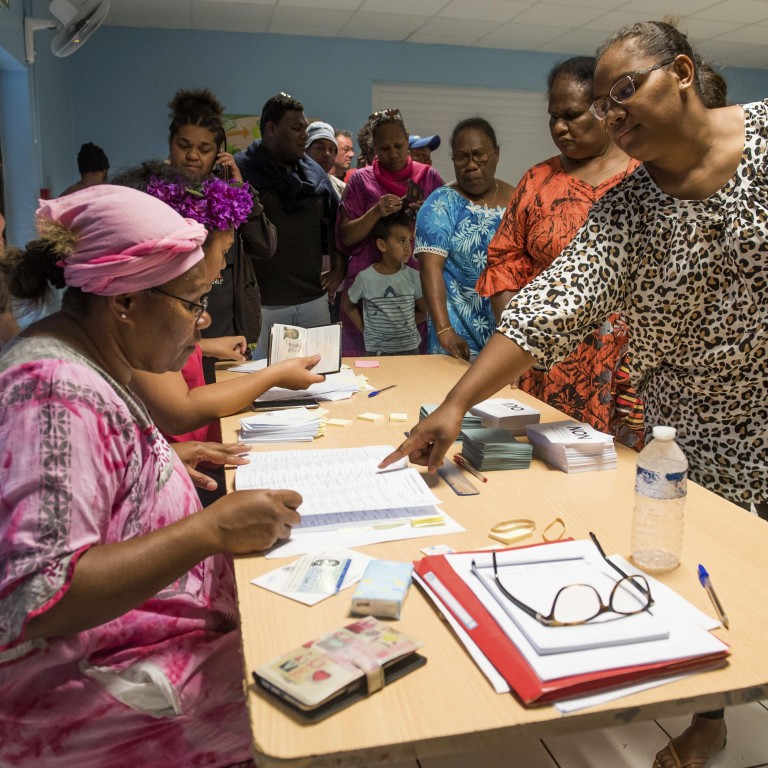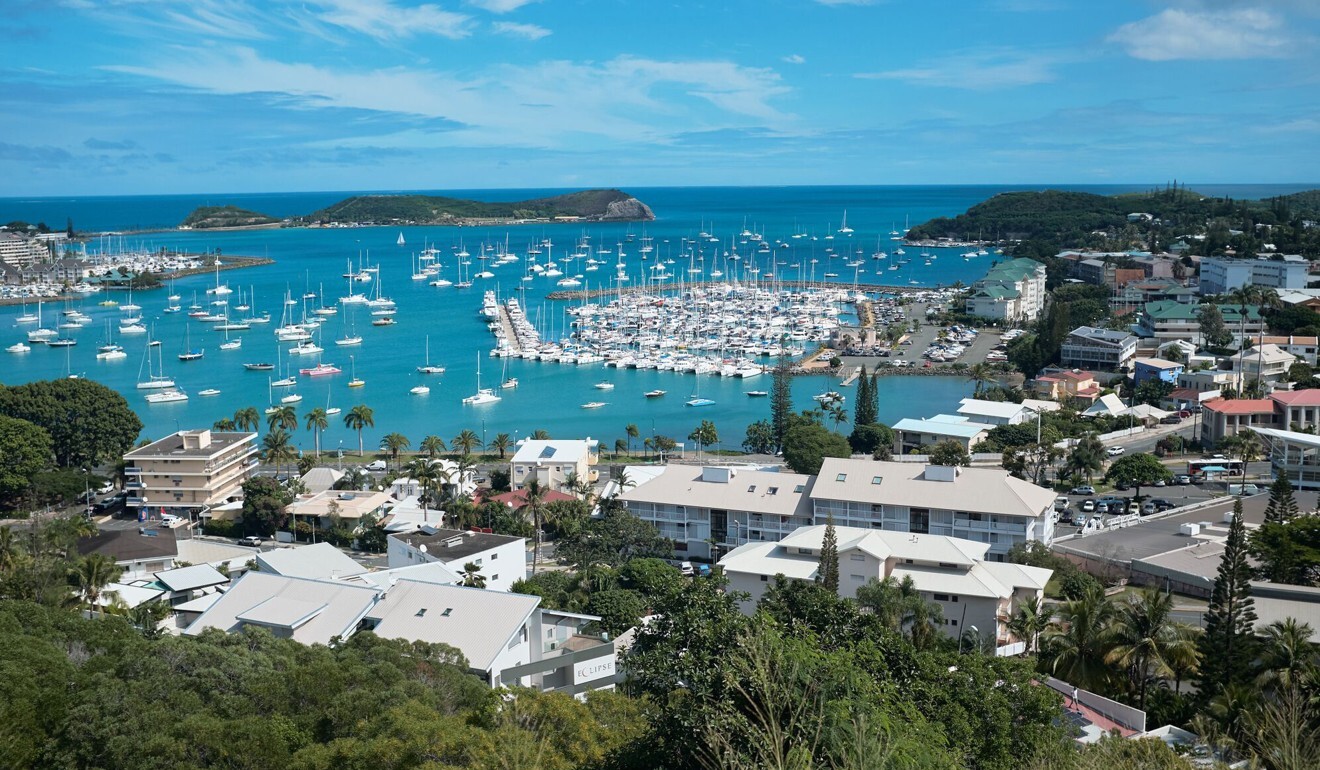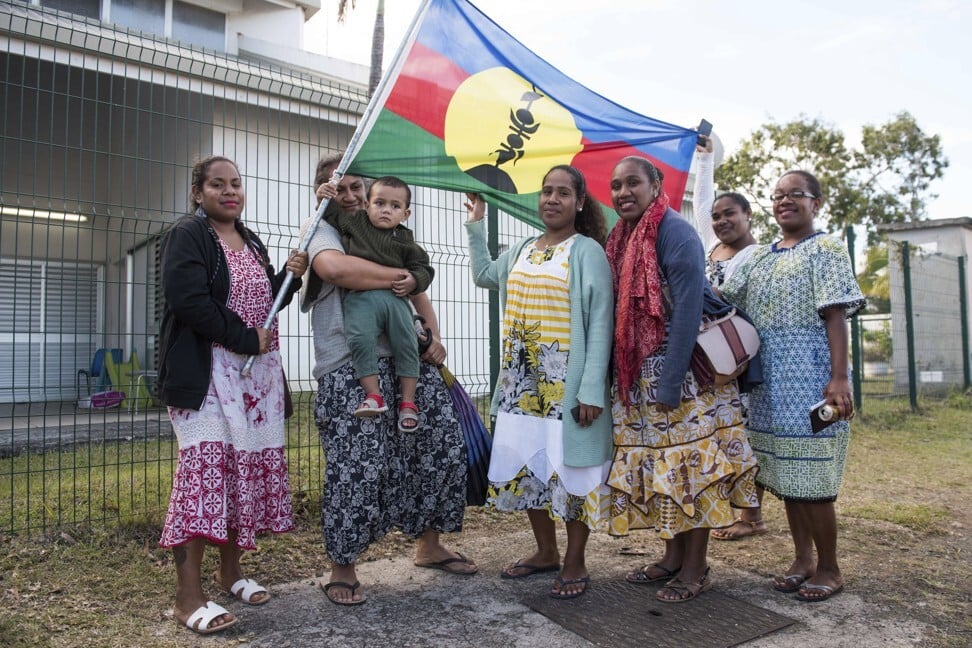
New Caledonia votes to remain part of France in referendum
- The referendum is part of a carefully negotiated decolonisation plan agreed in 1998, known as the Noumea Accord
- China has in recent years been expanding its influence in the resource-rich region
The South Pacific archipelago of New Caledonia voted against independence from France in a referendum on Sunday, full provisional results showed.
The ‘no’ camp won 53.26 per cent of the vote, a narrower margin of victory than in a previous referendum in 2018, which saw 56.7 per cent of people supporting independence.
The turnout of 85.5 per cent was much higher than last time, reflecting enthusiasm of voters who had formed long queues to cast their ballots in a region which has been part of France since 1853.
Sunday’s referendum was part of a carefully negotiated decolonisation plan agreed in 1998 which ended a deadly conflict between the mostly pro-independence indigenous Kanak population and the descendants of European settlers known as “Caldoches” in the 1980s.
That violence culminated in a bloody, drawn-out hostage crisis in 1988 that saw 19 separatists killed on one side, and six police and special forces on the other.
Another referendum could be held by 2022 as long as the poll is requested by at least one-third of the local legislature.
Most political observers had forecast a win for the no-vote as well as a narrower margin.
The prospect of a tight race brought voters out in droves, patiently awaiting their turns at polling stations. Turnout was estimated at 85.5 percent.
“I waited 45 minutes. It’s very important for me to vote,” said retiree Germaine Le Demezet in the capital Noumea. “I have children and grandchildren here, the future needs to be clear and we need to know what’s going to happen to us.”

Corine Florentin, who was born in Noumea 52 years ago, said she voted against independence because she wants to “remain French”.
“We can live together, all races together, and design our common future,” she said.
A student at the University of New Caledonia, Guillaume Paul, 18, also voted “no” because he wants the archipelago to keep its ties with France.
“What would the country become if it was independent? There is a real danger that without the financing brought by France, the university would disappear, ” he said.
But Joachim Neimbo, 22, was in favor of independence.
“I voted yes, because that’s my people’s combat. We want the recognition of our identity, our culture. I think we are able to manage ourselves,” he said.
Taguy Wayenece, 25, also voted “yes” to independence.
“We need to return to tradition, to working in the fields, to stay with the tribe. Modern life is too complicated for us,“ he said.
New Caledonia has a population of around 269,000 and lies 1,200km east of Australia and 18,000km from Paris.
The South Pacific archipelago has been inhabited by the first settlers for about 3,000 years.
New Caledonia’s economy is underpinned by annual French subsidies of some €1.3 billion (US$1.52 billion) and nickel deposits that are estimated to represent 25 per cent of the world’s total, and tourism.
But China has in recent years been expanding its influence in the resource-rich region, to the consternation of the United States and Australia.
New Caledonia enjoys a large degree of autonomy but depends heavily on France for matters such as defence and education.
The last former colonies to be given independence by France were Djibouti in 1977 and Vanuatu in 1980.
Agence France-Presse, Reuters and DPA

